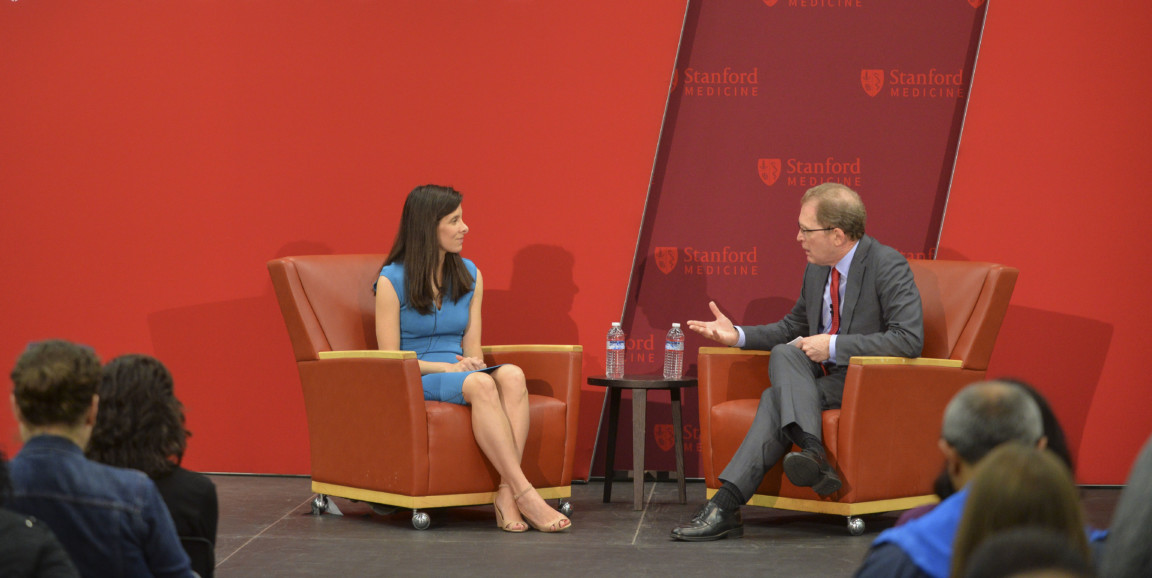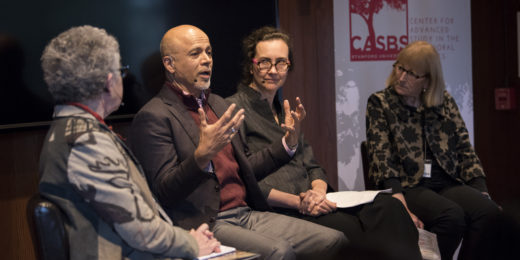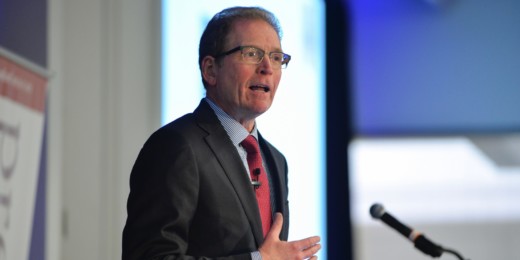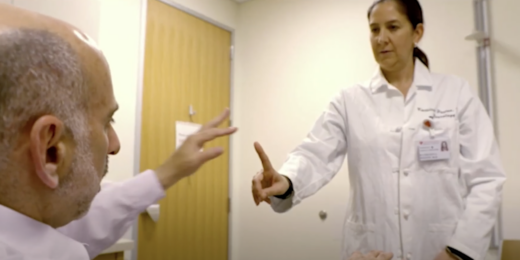Situated in the heart of the Silicon Valley, Stanford Medicine benefits hugely from interactions with its tech neighbors. In the spirit of that exchange, the latest Dean's Lecture Series event featured a wide-ranging conversation between Dean Lloyd Minor, MD, and Jessica Lessin, founder and editor-in-chief of The Information, a publication focusing on technology.
"We are seeing many areas of intersection between consumer-based technology, health care and biomedicine today," Minor said. "Jessica's perspectives on what is going on in tech has a lot to teach us as we explore more opportunities to make digital health and AI-enabled analytics really work to the benefit of health care."
One of the primary challenges facing both consumer technology and digital health care hinges on privacy and the generation -- and maintenance -- of trust, Minor pointed out.
"We have this incredible opportunity to perfect our ability to make diagnoses and to establish the best care delivery pathways," Minor said. "But to bring together the data that allows the algorithm to learn... somehow it has to have the public trust that it is going to be kept private and used in the right way. I think it is a challenge right now to know how to go about building that trust."
First, consumers should be told how their data is being used and have a choice whether to participate or not, Lessin said.
In addition, one lesson, Lessin said, that can be taken from the Facebook/Cambridge Analytica scandal is that how the data is managed is quite important. One company, however stellar its reputation, should probably not be entrusted with masses of data.
"What other architectures could facilitate that so we don't have to take one company at their word?" she asked. One oft-cited example, she continued, is using blockchain, or disseminating the data between many decentralized nodes.
"I'd like to see companies and institutions figuring out ways to aggregate [the data] that are really transparent," Lessin said.
Both Minor and a member of the audience asked Lessin about her views on diversity in tech and the representation of women in leadership positions.
"[At The Information], we looked at gender diversity and ethnic diversity and its pitiful," Lessin said. "One thing that has changed is public pressure. We're seeing companies and investing firms talk about it more."
And currently, companies are focusing on the issue to escape bad publicity, or to comply with regulations such as the new California requirement to have women on corporate boards, Lessin said.
The new board requirement is not a solution, however, Lessin said.
"It's cosmetic, but I'm at the point of believing the cosmetic stuff is worth doing even if they aren't doing this for the right reason," she said.
Lessin fielded questions from the audience on topics ranging from freedom of speech to the state of journalism and the workforce implications of technology.
Kevin Schulman, MD, a new Stanford professor of medicine, pointed out that medicine could learn from tech how to better engage with its consumers, or patients.
Improving communication, as simple as how to get in touch with a care provider, is one step that could make a difference, Lessin said. Another potential takeaway tip is that tech companies focus heavily on measurement and tracking, she said.
But there are differences between the industries.
"The things that make consumer tech companies work -- a rapid iteration cycle of testing, trying, not working... at scale over and over again -- or 'move fast and break things' does sound a bit scary for medicine," Lessin said.
The conversation took place on campus last Thursday.
Photo by Rod Searcey






